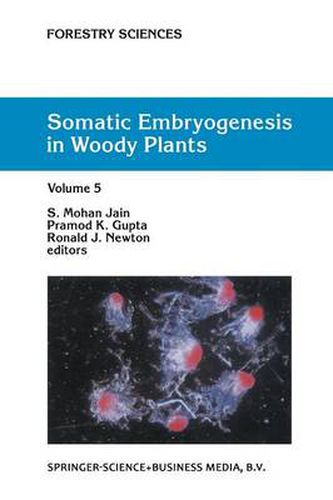Readings Newsletter
Become a Readings Member to make your shopping experience even easier.
Sign in or sign up for free!
You’re not far away from qualifying for FREE standard shipping within Australia
You’ve qualified for FREE standard shipping within Australia
The cart is loading…






This title is printed to order. This book may have been self-published. If so, we cannot guarantee the quality of the content. In the main most books will have gone through the editing process however some may not. We therefore suggest that you be aware of this before ordering this book. If in doubt check either the author or publisher’s details as we are unable to accept any returns unless they are faulty. Please contact us if you have any questions.
The quality of human life has been maintained and enhanced for generations by the use of trees and their products. In recent years, ever rising human population growth has put a tremendous pressure on trees and tree products; growing awareness of the potential of previously unexploited tree resources; and environmental pollution have both accelerated the development of new technologies for tree propagation, breeding and improvement. Biotechnology of trees may be the answer to solve the problems which can not be solved by conventional breeding methods. The combination of biotechnology and conventional methods such as plant propagation and breeding could become a novel approach to improving and multiplying a large number of the trees and woody plants. So far, plant tissue culture technology has largely been exploited by commercial companies in propagation of ornamentals, especially foliage house plants. Generally, tissue culture of woody plants has been recalcitrant. However, limited success has been achieved in tissue culture of angiosperm and gymnosperm woody plants. A number of recent reports on somatic embryogenesis in woody plants such as Norway spruce (Picea abies), Loblolly pine (Pinus taeda), Sandalwood (Santalum album), Citrus and mango (Mangifera indica), offer a ray of hope for inexpensive clonal propagation for large-scale production of plants or ‘emblings’ or somatic seedlings; protoplast work; cryopreservation; genetic transformation; and synthetic or artificial or manufactured seed production.
$9.00 standard shipping within Australia
FREE standard shipping within Australia for orders over $100.00
Express & International shipping calculated at checkout
Stock availability can be subject to change without notice. We recommend calling the shop or contacting our online team to check availability of low stock items. Please see our Shopping Online page for more details.
This title is printed to order. This book may have been self-published. If so, we cannot guarantee the quality of the content. In the main most books will have gone through the editing process however some may not. We therefore suggest that you be aware of this before ordering this book. If in doubt check either the author or publisher’s details as we are unable to accept any returns unless they are faulty. Please contact us if you have any questions.
The quality of human life has been maintained and enhanced for generations by the use of trees and their products. In recent years, ever rising human population growth has put a tremendous pressure on trees and tree products; growing awareness of the potential of previously unexploited tree resources; and environmental pollution have both accelerated the development of new technologies for tree propagation, breeding and improvement. Biotechnology of trees may be the answer to solve the problems which can not be solved by conventional breeding methods. The combination of biotechnology and conventional methods such as plant propagation and breeding could become a novel approach to improving and multiplying a large number of the trees and woody plants. So far, plant tissue culture technology has largely been exploited by commercial companies in propagation of ornamentals, especially foliage house plants. Generally, tissue culture of woody plants has been recalcitrant. However, limited success has been achieved in tissue culture of angiosperm and gymnosperm woody plants. A number of recent reports on somatic embryogenesis in woody plants such as Norway spruce (Picea abies), Loblolly pine (Pinus taeda), Sandalwood (Santalum album), Citrus and mango (Mangifera indica), offer a ray of hope for inexpensive clonal propagation for large-scale production of plants or ‘emblings’ or somatic seedlings; protoplast work; cryopreservation; genetic transformation; and synthetic or artificial or manufactured seed production.